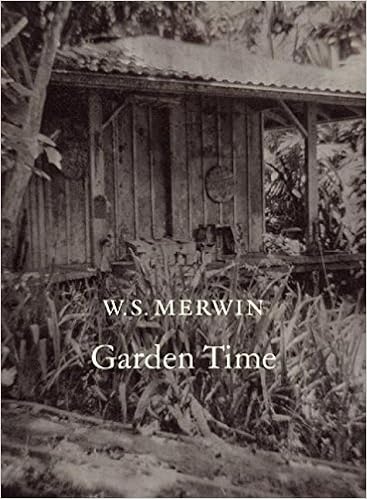
"Garden Time" is an exquisite and moving collection of poems. Merwin writes like a man who has loved life almost too much and now, facing his own mortality, is paying a price. The very first line of the book asks, “Would I love it this way if it could last.” That the answer is No is perhaps our greatest consolation in a fleeting world.
The sense of impending loss, of the speed of time, gives an urgency to Merwin’s need to remember his experiences. An experience forgotten is a piece of life lost. Simply drinking a cup of green Korean tea, Merwin reflects, “the taste is a hush from far away / at the very moment when I sip it / trying to make it last in the knowledge / that I will forget it in the next breath.”
Part of the pathos in the book rises from the many poems he wrote for his wife Paula, whose mortality worries him more than his own:
These days I can see us clinging to each other
as we are swept along by the current
I am clinging to you to keep you from
being swept away and you are clinging to me
to keep me from being swept away from you
Paula Merwin’s death a matter of weeks after the publication of the book makes these poems all a little sadder.
Through it all, however, Merwin also recognizes the moments of happiness, of abrupt, unexpected joy, that continue to appear in his life. In the last poem, called, with obvious double meaning, “The Present,” an angel offers a gift, telling the recipients, “you will not be able to keep it / but you will not be able // to keep anything.” Merwin continues, “yet they both reached at once // for the present / and when their hands met // they laughed.” In every poem in "Garden Time," Merwin is reaching for the present in both senses: this moment of time understood as a gift.
Like all Merwin’s work, the poems are simple, clean-lined, delicate as haiku though more often shaped like sonnets, and without any punctuation to guide you. If you read them aloud, however, the syntax becomes plain enough. If you hear a quiet, generous, sane music in the lines, you’re reading them right. And once you’ve finished the little book, you won’t take anything for granted.
No comments:
Post a Comment